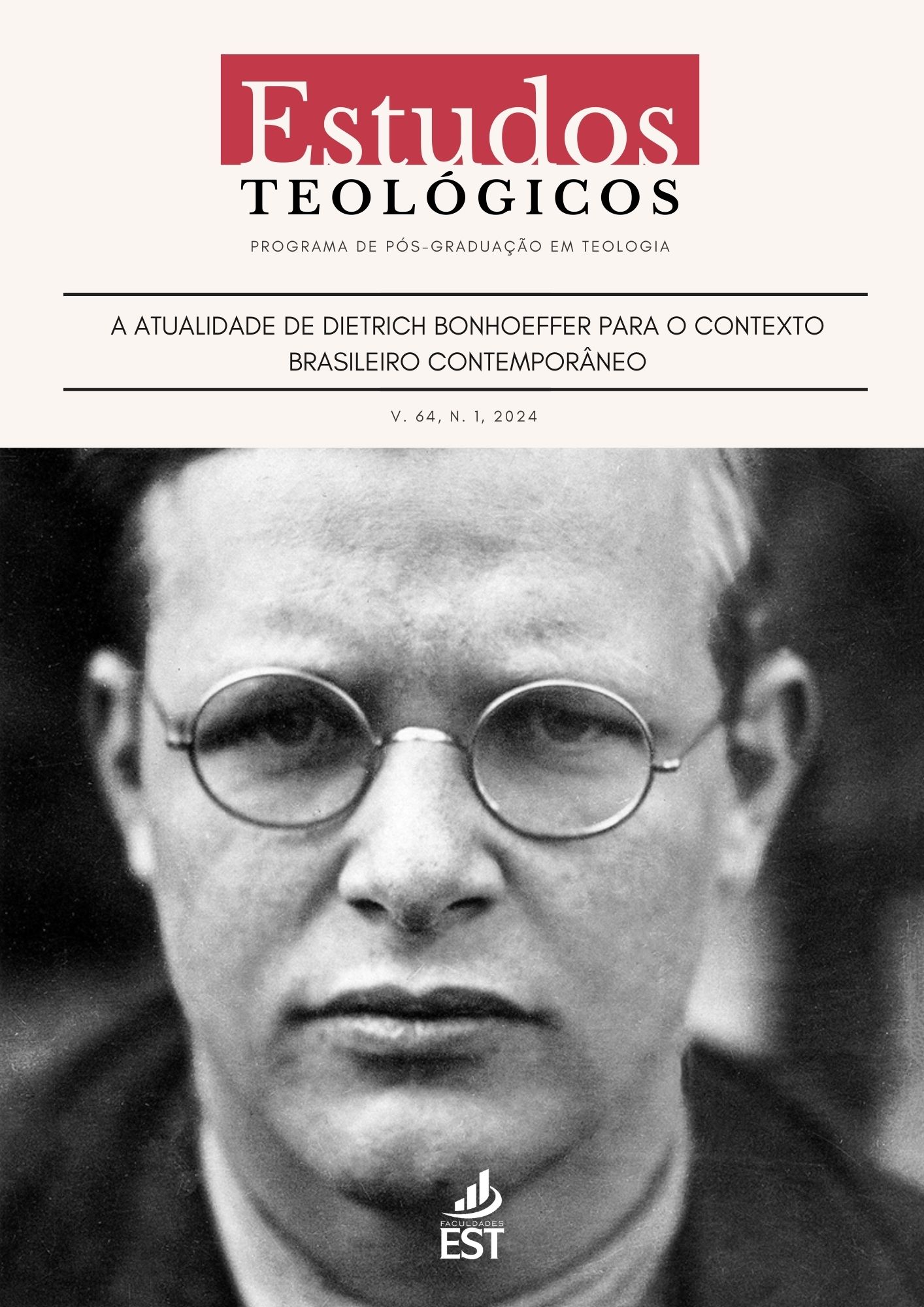The Suspension of Ethics
a reflection from the first chapter of Bonhoeffer's Ethics
Keywords:
Ethic, Bonhoeffer, Fall, Consciousness, GraceAbstract
This article is a textual analysis of the first chapter of the work Ethics by German theologian Dietrich Bonhoefffer, “The Love of God and the Decadence of the World,” in an exegetical effort, and embarking on a rereading and discussion from it regarding the limits of Christian ethics. It discusses the relationship between the knowledge of good and evil and the fall of humanity and argues that ethical knowledge is born from the separation between the human being and God, which results in a vision of the human being centered on himself and on the objectification of the other, presented from the concept of concealment. The article also emphasizes that the ethical knowledge resulting from the fall is characterized by a constant conflict between good and evil, defined as eschatological ethics, and that true freedom and reconciliation come from the grace of God, which breaks up with the need for self-justification and ethical heroism and leads to an authentic relationship with the neighbour. The suspension of ethics, the intention of the article, consists in the fact that grace is anchored in human abdication in building any ethical merit from oneself.











